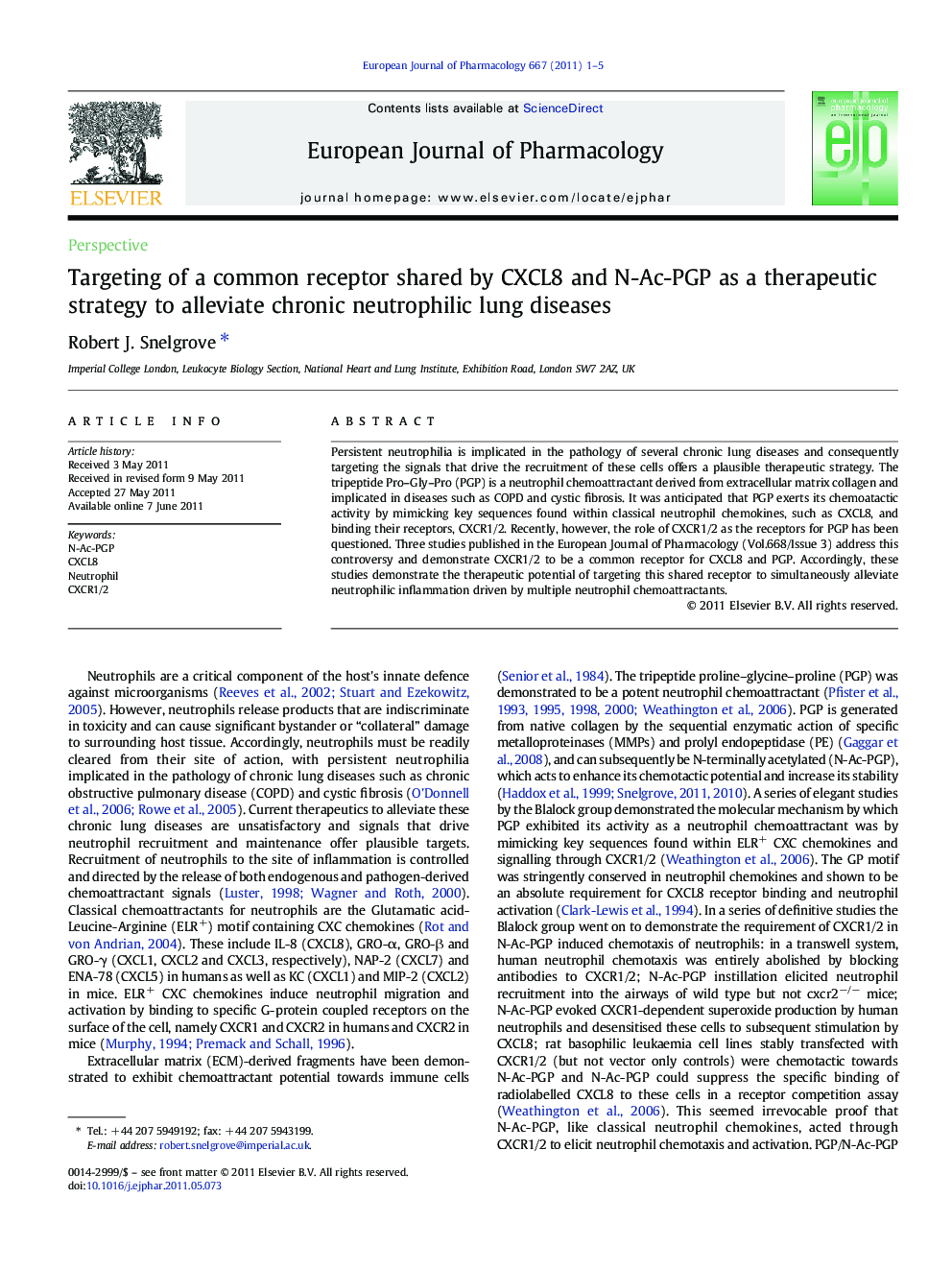| کد مقاله | کد نشریه | سال انتشار | مقاله انگلیسی | نسخه تمام متن |
|---|---|---|---|---|
| 2532687 | 1559018 | 2011 | 5 صفحه PDF | دانلود رایگان |

Persistent neutrophilia is implicated in the pathology of several chronic lung diseases and consequently targeting the signals that drive the recruitment of these cells offers a plausible therapeutic strategy. The tripeptide Pro–Gly–Pro (PGP) is a neutrophil chemoattractant derived from extracellular matrix collagen and implicated in diseases such as COPD and cystic fibrosis. It was anticipated that PGP exerts its chemoatactic activity by mimicking key sequences found within classical neutrophil chemokines, such as CXCL8, and binding their receptors, CXCR1/2. Recently, however, the role of CXCR1/2 as the receptors for PGP has been questioned. Three studies published in the European Journal of Pharmacology (Vol.668/Issue 3) address this controversy and demonstrate CXCR1/2 to be a common receptor for CXCL8 and PGP. Accordingly, these studies demonstrate the therapeutic potential of targeting this shared receptor to simultaneously alleviate neutrophilic inflammation driven by multiple neutrophil chemoattractants.
Research Highlights
► Persistent neutrophilia is implicated in the pathology of chronic lung diseases.
► Collagen-derived tripeptide, Pro-Gly-Pro (PGP), is a neutrophil chemoattractant.
► PGP is observed in chronic lung diseases such as COPD.
► PGP signals through CXCR1/2, the same receptors used by neutrophil chemokine CXCL8.
► Targeting shared receptors CXCR1/2 may alleviate neutrophilic inflammation.
Journal: European Journal of Pharmacology - Volume 667, Issues 1–3, 30 September 2011, Pages 1–5